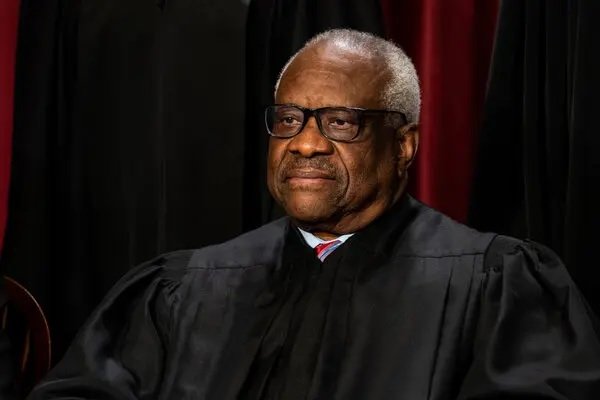In an unexpected turn of events, Justice Clarence Thomas has provided a detailed response to allegations of failing to disclose luxury trips, private jet flights, and a real estate transaction with Texas billionaire Harlan Crow in his annual financial disclosure form. This disclosure comes amidst growing scrutiny of Supreme Court justices’ financial dealings and calls for a stricter ethics code. In this article, we delve into Justice Thomas’s response, shed light on the broader issue of financial transparency among justices, and explore potential implications for the future.
Transparency Under Scrutiny
Justice Clarence Thomas’s financial disclosure form release is part of an ongoing conversation about transparency within the Supreme Court. Recent reports have highlighted the limited disclosure requirements in place and the discretionary nature of compliance, leaving justices to police their own financial reporting. Unlike other federal judges, Supreme Court justices are not bound by binding ethics rules.
Every spring, justices are required to file financial forms, with most released in early June. However, Justices Thomas and Samuel A. Alito Jr. requested 90-day extensions for their submissions, and both forms were unveiled just recently.
Justice Thomas’s Response
In his disclosure, Justice Thomas addresses his decision to travel on Mr. Crow’s private jet, citing increased security concerns following the leak of a draft opinion related to a constitutional right to an abortion. While he disclosed three trips on Mr. Crow’s private jet over the past year, questions linger about the comprehensiveness of the report.
The nature of Justice Thomas’s longstanding relationship with Mr. Crow has raised eyebrows, with reports detailing extravagant gifts, private jet flights, island-hopping on Mr. Crow’s yacht, and vacations at his Adirondacks estate. Mr. Crow also purchased Justice Thomas’s mother’s home in Savannah, Georgia, and contributed to private school tuition for the justice’s great-nephew, whom he was raising.
Justice Alito’s Acknowledgment
Justice Alito also faced scrutiny after acknowledging that he had taken a private flight provided by hedge fund billionaire Paul Singer during a vacation in 2008. Mr. Singer had subsequent business before the court. Both justices asserted that these gifts and travels did not need to be reported at the time, interpreting the rules differently.
Evolving Reporting Rules
In March, the Judicial Conference of the United States announced rule changes requiring disclosure of private jet flights. Justice Thomas explained that he had followed existing regulations and sought guidance but acknowledged errors in previous financial reports, including personal bank accounts and a real estate transaction with Mr. Crow.
Justice Thomas’s lawyer, Elliot S. Berke, emphasized that these errors were inadvertent and denied any willful ethics violations. Berke criticized “left-wing ‘watchdog’ groups” for attacking the justice over his relationships with wealthy personal friends.
Calls for Reform
In recent months, lawmakers have been advocating for an ethics code, with proposals from Senate Democrats and expert testimonies before Congress. Senator Sheldon Whitehouse expressed determination to investigate the influence of right-wing billionaires on the court. However, it remains uncertain whether the justices will take steps to reform ethics rules.
In Conclusion
Justice Thomas’s disclosure sheds light on the complexities of financial transparency within the Supreme Court and raises questions about potential reform. While he has addressed some omissions in his disclosure, concerns linger regarding unreported gifts and trips. As the conversation around transparency continues, the Supreme Court’s response to these issues remains uncertain, leaving room for further debate and potential change in the future.





